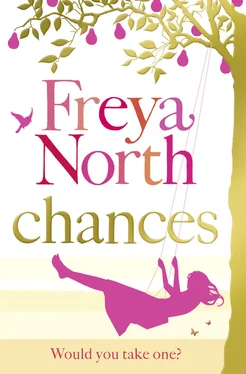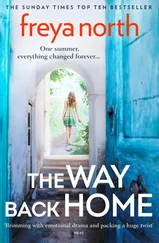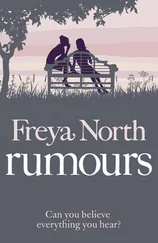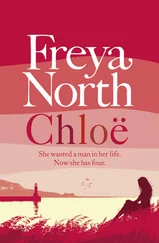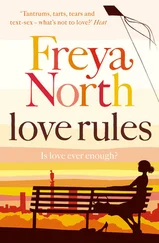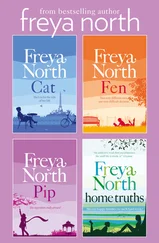She glances at Tim. Experiences a pang. Wonders how that could be, after so long. After everything.
‘Hey, Tim.’ It isn’t a question and, though she says it softly, she knows she shouldn’t have said it at all. He just looks at her. There’s nothing behind his eyes. It’s the neutrality that hurts the most.
When did he buy that new shirt? It suits him, it suits his dark grey eyes, his close-cropped hair the colour of slate.
‘Be in touch,’ he says as he leaves.
He doesn’t look back.
Tim is someone who never looks back.
Six years together, now heading towards a year since she left him. Vita looks at her watch and reprimands herself for having spent a daft amount of time lost in pointless reflection. She could have been reading. Or tidying. Or engaging with customers. Now look at the time. Sorry, Robinson, school’s out and the kids will soon descend, with their exasperated mums killing time to interrupt the drag of the remainder of the day. It’s Monday, though, and good for trade usually, on account of pocket money left over from the weekend.
She slips off the stool and goes to the store cupboard at the back of the shop, which is only slightly larger than the loo. She takes out a plastic antelope and a couple of other items and carries them back into the shop. Then she writes herself a Post-it note, sticking it next to the hook on which her jacket is hanging.
Order gorillas and lions.
Think Robinson, not Tim.
Oliver and Jonty
Oliver was washing up. He’d spilled water on himself and on the floor. His shirt had been clean and now the floor was dirty. The water was too hot and his hands were red. He needed a new washing-up sponge. There was no more room on the draining board. He’d used too much Fairy but as he still hadn’t fixed the cold tap it meant the water spurted everywhere each time he rinsed something. To the right of him, the dishwasher stood empty. Top-of-the-range, still under its extended guarantee. Unused for nearly three years. His wife had loved that appliance more than any of the others.
‘I could live without TV,’ she’d said, ‘I don’t mind laundrettes. But the dishwasher? I’d sell myself , rather than part with it – it’s the apotheosis of modern invention.’
He thought about that now; how only DeeDee could refer to something as dull as a dishwasher as the Apotheosis of Modern Invention. He thought about how she liked to say she didn’t have ‘hands that do dishes’. Not from any pomposity but because her hands really had been slender and soft – pale, silky, protected. She rubbed cream in as though it was a ritual. Tubes of the stuff remained. They were still there, on windowsill and bedside table, by the basin, by the phone near the front door. Some were scented with lavender, some with rose. Some were formulated for Norwegian fishermen. One was for babies’ bottoms. It was called Butt Butter. Her cousin in the States used to send it at regular intervals. This was the last tub. Oliver looked at his hands, redder by the minute. He should have taken his watch off.
Of all the things to miss, it was the simple sight of a meticulously stacked dishwasher he longed for most these days. And yet, it had been one thing that had wound them both up at the time. DeeDee hated him stacking it because she said he didn’t do it properly. She’d physically shove him out of the way, complaining how he didn’t maximize space the way she did, even accusing him of doing this on purpose (which was true). He’d hated her tutting and huffs and the exasperation written all over her face. It had made him sling stuff in on purpose. Put a mug in the wrong way up so that it filled with the sedimenty water. How ridiculous had that been? Both of them. Life’s way too short to fall out over a stupid dishwasher.
He’d called her a fucking control freak once. She’d gone stony cold and had said, I’m doing it for us – it’s the way I keep our home and if you want to make a mockery of that you can fuck off yourself. He’d said, Stop being so bloody melodramatic. Jonty, who had been about eight or nine, had said, What’s melon-traumatic? And she’d said, Mel-o-dramatic, darling, it’s nothing, just a silly word for a silly thing. So gently, so sweetly, so patiently that this had wound up Oliver even more. He’d stropped off to the pub. And later, when guilt had made him leave before closing time and he’d returned and unloaded the dishwasher, he’d had to concede how well she’d restacked it. One beer too many had made him annoyed that she could be right over something so trivial, exasperated that her natural fastidiousness, the high standards she placed on family and home and perfection, necessitated this crazy rigidity to maintain them.
That night long ago – when was it? – if Jonty had been nine-ish, it must have been a good five years ago. The dishwasher before this one. That night, back then, Oliver had slept in the spare room. And DeeDee had crept in during the small hours. And they’d shuffled closer and closer together, cuddling and kissing and pressing and offering silent apologies. Jonty had gone into their empty bedroom in the morning and wondered whether aliens had abducted his parents.
DeeDee would die if she saw the state of the house now. Or, rather, she’d die again.
Today, Oliver can still feel the muddle of conflicting emotions – like washing up with water so hot it feels cold. He likes to justify that, these days, it’s environmentally irresponsible to use a dishwasher. Especially since there’s only him and Jonty. And mostly they eat takeaways direct from the tubs. And the food they cook at other times rarely requires many utensils. Just plates, really, for pizza or cold cuts or beans on toast. They often don’t bother with knives. They use their forks – to spear, to scoop, to sever. They go through an industrial quantity of teaspoons each day.
‘Remember how Mum used to always lay the table? Including a spoon for pudding even though she invariably said, Help yourselves to fresh fruit?’
‘Yeah,’ says Jonty.
But his father can’t tell what his son’s eyes are saying behind that lank curtain of dye-dark hair. It is one of those moments when Oliver considers how a teenager’s hair can hide a child’s eyes. And he is not sure what he’s meant to do about it.
‘You can dry.’
‘There’s only about two plates and a hundred forks, Dad. Let it all drain.’
His son is on his way out of the kitchen, to flick on the TV in front of which he’ll sit with his dad, quietly watching whatever crap might be on until they’re finally tired enough for bed.
Oliver looks at the draining board.
Only two plates. And just forks. It breaks his heart all over again.
‘Cup of tea, Jont?’
Bugger. No clean mugs again. He rinses out a couple with scalding water, using his thumbs to rub away the ring marks from previous brews.
I missed you today, DeeDee.
Is it OK to tell you that there are days now, almost three years on, when I don’t know if I’ve thought about you so I remind myself to? That one day recently I merely mentioned you in passing and didn’t pause after doing so? You were in and out of the conversation in a click. I was chatting to Adrian. Your name simply slid in and out of the conversation like a bird flying past.
Now I’m going to sit beside our son and watch TV till we’re knackered. We don’t put biscuits on a plate any more, DeeDee. We just eat them from the packet. And when Mrs Blackthorne comes – because she still comes – she has a week’s worth of crumbs to deal with. Today, though – today I miss you, darling.
The Tree Houses
Where Vita lived, officially called Mill Lane, was always referred to as the Tree Houses. Not that these were eco-savvy dwellings in lofty boughs, however, but a terrace of small, plain, Victorian two-up, two-downs in red brick. Cherry Tree Cottage, Plum Tree Cottage, Walnut Tree Cottage, Damson, Apple, Hazel, Quince and Pear Tree Cottage. Apple Tree Cottage had a small, old, wizened tree in the front garden that each spring blossomed in a half-hearted manner but rarely followed through with fruit of any quality. The only blossom at Cherry Tree Cottage was garishly painted onto an elaborate name plaque. There were no eponymous trees at Walnut, Quince or Hazel. Damson Cottage had its windows and door painted the colour of the fruit but the garden itself was laid mainly to gravel. Plum Tree Cottage was by far the prettiest with roses around the front door, a lavender-bordered path and a profusion of gay bedding plants through the summer, but no plums. Pear Tree Cottage, Vita’s house, was right at the end.
Читать дальше
